Methodological seminar "Maps, Memories, and the Craft of Ethnography: Using Participatory Tools in Displacement Research in Conflict-Affected Communities"
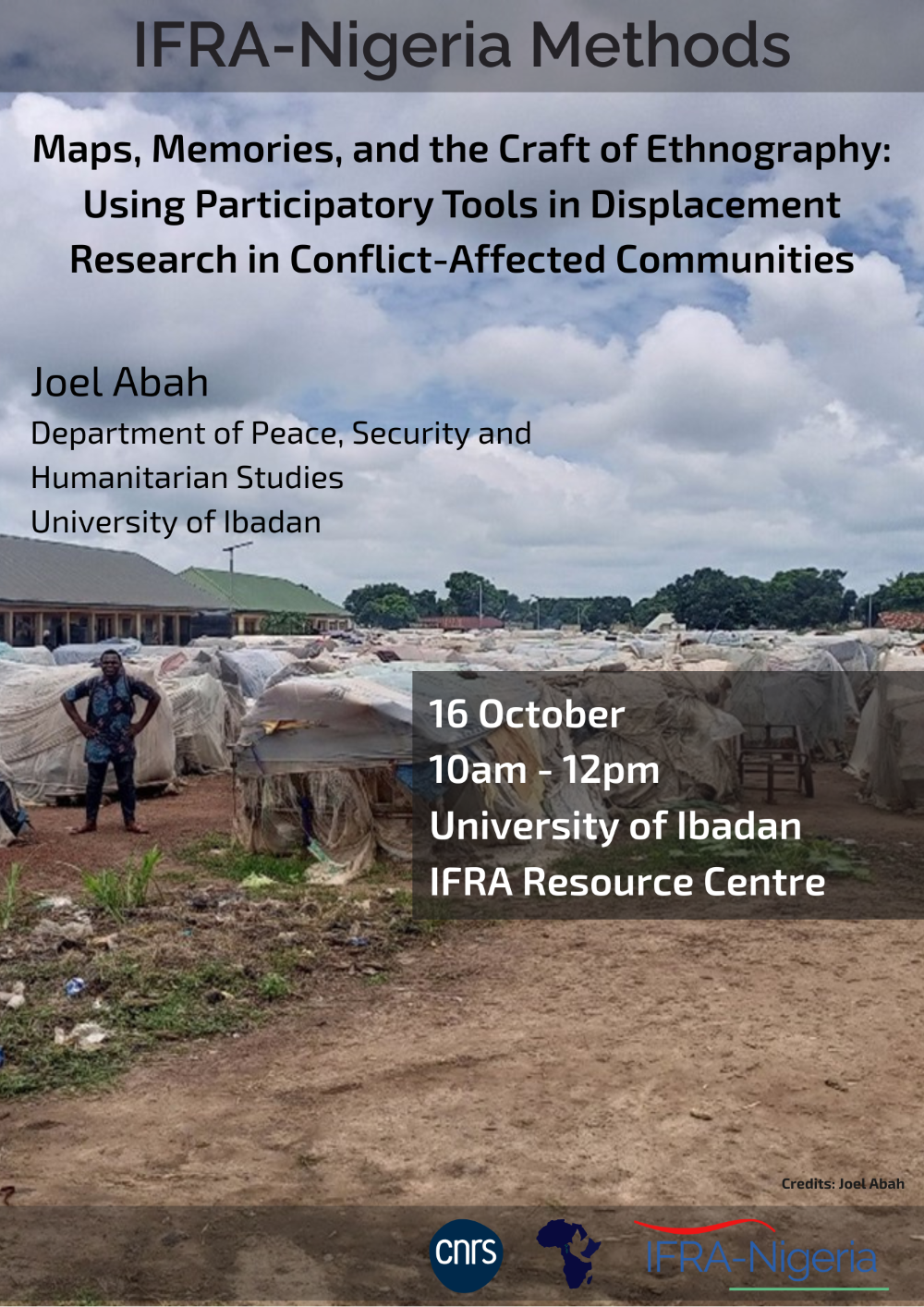 On 16 October, 2025, Joel Abah, doctoral candidate at the Department of Peace, Security and Humanitarian studies at the University of Ibadan, presented his work on communities in Benue displaced camps during our latest methodological seminar "Maps, Memories, and the Craft of Ethnography: Using Participatory Tools in Displacement Research in Conflict-Affected Communities".
On 16 October, 2025, Joel Abah, doctoral candidate at the Department of Peace, Security and Humanitarian studies at the University of Ibadan, presented his work on communities in Benue displaced camps during our latest methodological seminar "Maps, Memories, and the Craft of Ethnography: Using Participatory Tools in Displacement Research in Conflict-Affected Communities".
Benue State is a home to a large number of internally displaced persons (IDPs), as a consequence of the farmer-herder violence but also of a variety of communal conflicts. After two years in the camps for his fieldwork, Joel Abah reflected on practicing the craft of ethnography in high-risk situations where distrust is the norm. He stressed that the throughline is that the theoretical plan will always be heavily challenged in the field. Working in such specific situations also requires to think deeply about the ethics of your research, your security and to always be able to improvise.
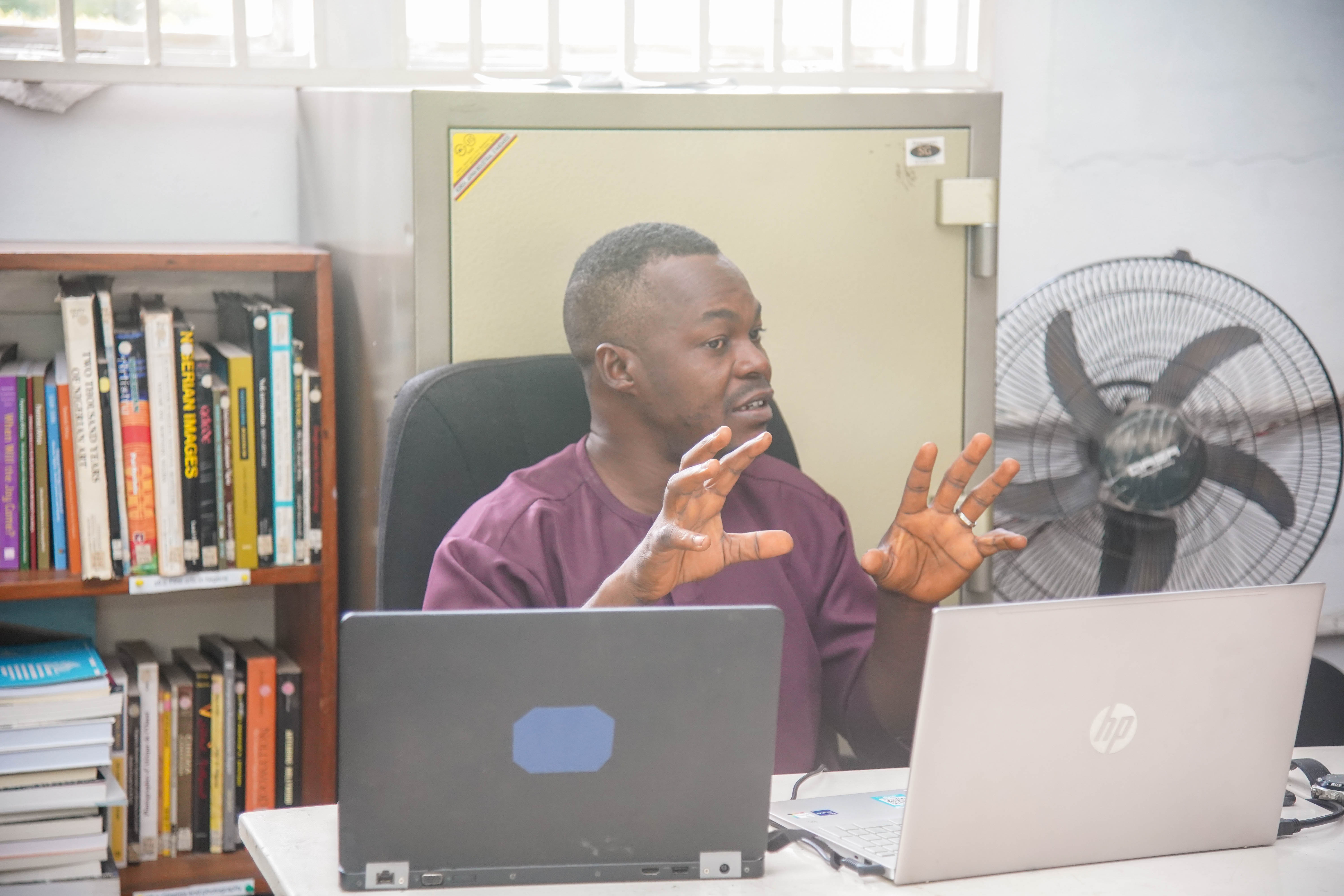
Joel Abah presenting his work
First, Joel Abah talked of the complexity of a researcher's positionality in such vulnerable environments. In his case, being from the region and speaking the language, but forced to get authorization and official guides from the state, he was seen both as an insider and an outsider. Emphasizing the importance of building trust with the population, he detailed his approach based on the respect of the interviewees' dignity and a dedication to non-extractive research. He explained how he would initially mostly act as a listener and let the person he was interviewing talk without interruptions. Indeed, to him the heart of ethnography is to co-produce knowledge with the interviewees.
Outside of semi-structured interviews, he also used more experimental methods such as accessing the camps' WhatsApp groups and mapping them with GIS. Those methods had the double benefit of providing him with new data and also with security information, allowing him to stay safe during his fieldwork.
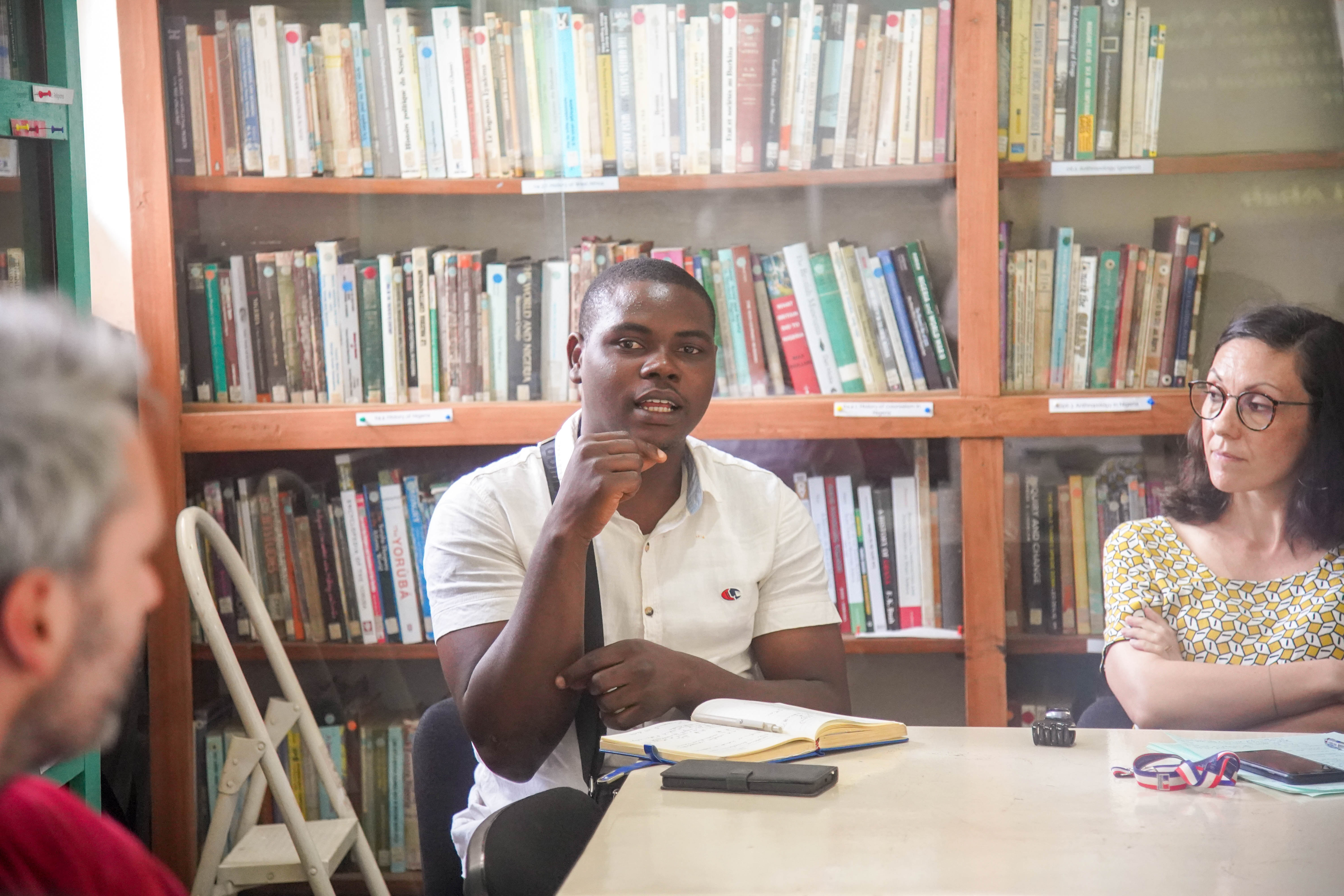
Participant during the Q&A
However, setbacks are inevitable in such research. For example he lost access to a camp following an attack and he suffered from mistrust from aid organizations who suspected him of being an impact assessor and in return soured his relations with the camp's leaders. The many gatekeepers in the camp often prevented him from accessing his terrain. Moreover, not only did he have to wait through the long delays of government administration for his authorizations, but he also had to care for the security of the interviewees, as his assigned tour guides started to play a surveillance role. Finally, due to the situation in Benue state, and despite all security precautions, he noted that it is still a dangerous fieldwork and one must be very aware of the current events and the safe spaces in case something unexpected occurs.
Joel Abah concluded by noting that the craft of ethnography is ever-evolving, and is first and foremost based on interconnectedness.
His talk was followed by a discussion from Stefan Le Courant, anthropologist and researcher at IFRA-Nigeria, who referred to debates within academic circles on whether it is possible to conduct an ethnography of violence, and highlighted that Joel Abah's work provided an example of a path to follow. On the question of trust and distrust, he offered to frame this question differently: it's possible to study how people manage an environment of generalized distrust, how they themselves become investigators. Therefore, he proposes to move beyond the idea of good and bad data, and rather see everything as an information on how people react to reality.
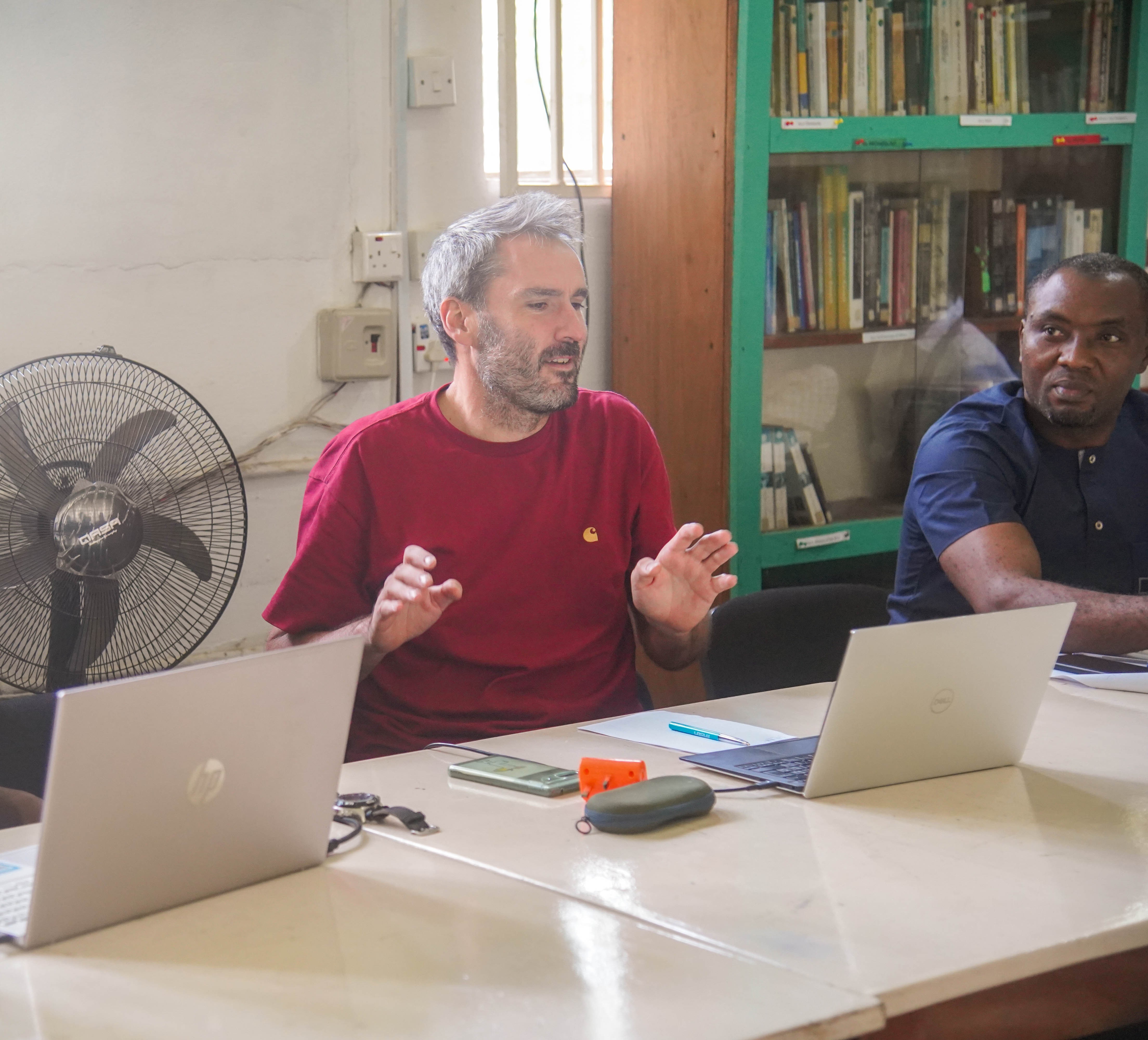
Stefan Le Courant during the discussion
This was followed by a Q&A session with the participants on the topics of the emotional impact of your research, the role of maps, the potential use of quantitative data, broadcasting research not only in academic circles but also more broadly and much more.
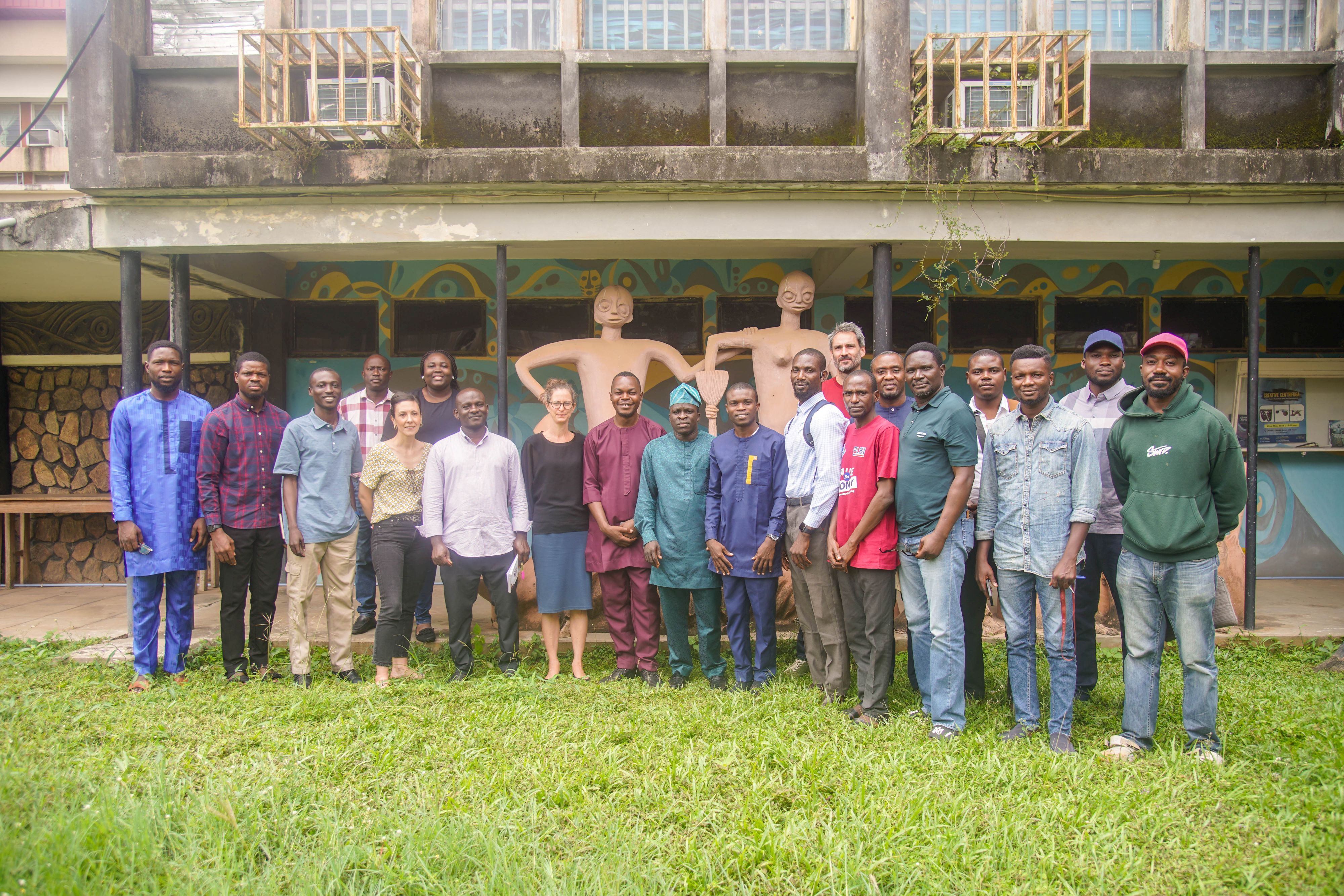
Participants of the methodological seminar

Social Media
Mailing List